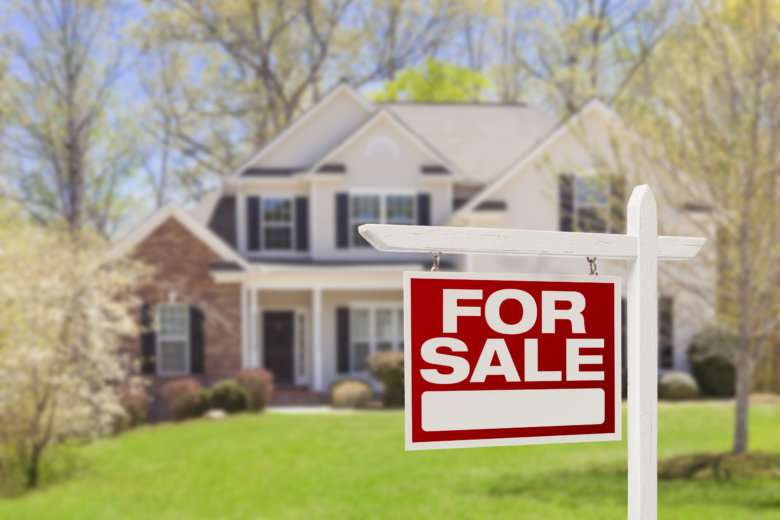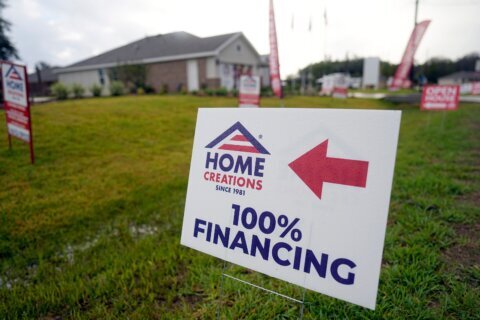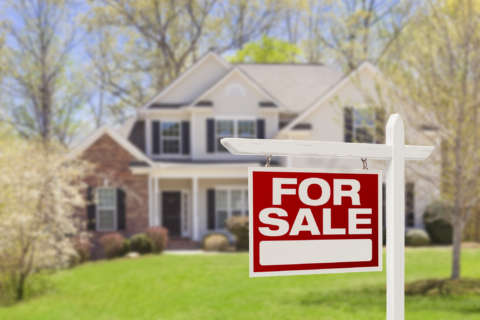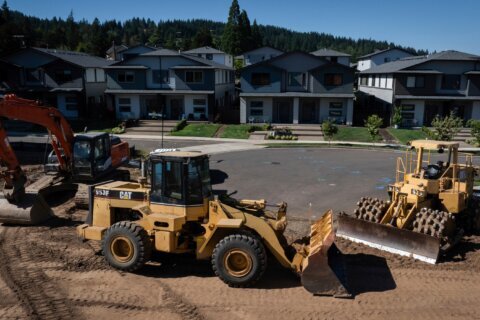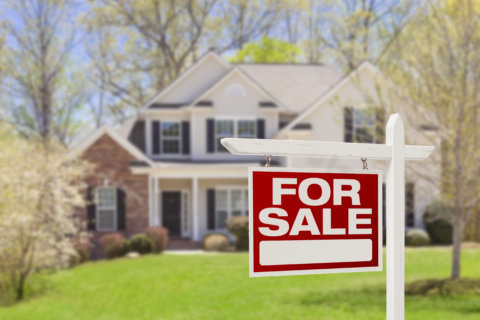
It can be hard to place a monetary value on something that carries sentimental value.
But when you decide to sell your home and find yourself tasked with pricing the place you hold so dear, how do you do it right?
As Gregory Barr, chief appraiser for Graham Appraisal in Glasgow, Kentucky, explains, all too often homeowners expect a higher appraisal value for their home when they put it on the market. “When we come by, everyone thinks their house is worth a lot more. When the tax assessor comes by, it’s worth a lot less,” he says.
[Read: The Guide to Selling Your Home]
At the end of the day, your home is worth as much as someone else will pay for it — and it’s an appraiser’s job to estimate what that value could be. “The market value is what a prospective buyer is willing to pay for the subject property,” explains Kelly Kellogg, owner of Appraisal Experts Inc. in the Orlando, Florida, area and author of “ABCs of a CMA,” which provides real estate agents with a breakdown of comparative market analysis to price and sell properties.
An appraisal can be used at different stages of the home selling or buying process by the buyer, seller or lender to determine the market value of a home. The appraisal process is often helpful for owners preparing to put their home on the market and especially when a seller and real estate agent have trouble agreeing on an initial asking price.
If you’re told your home is worth less than what you thought it was, what could be the cause? Appraisers weigh in on some of the major factors that could be dragging down the value of your home.
Here are some potential reasons your home value is lower than you expect:
Your Home Doesn’t Compare to That House Down the Street
Appraisers use recent transactions of similar homes in the area to assess your home’s potential value — but the houses must have similar amenities and features and be in similar condition to be truly comparable.
According to Carole Christensen, owner of Appraisal Minnesota is Northfield, Minnesota, homeowners are often confused when they receive an appraisal value that’s lower than they expected, and argue the neighbor’s house down the street sold for X more dollars. “Well, (your) neighbor’s house has a brand-new kitchen and baths and is 30 percent larger than your house and is a different design,” Christensen says.
The number of bedrooms in particular is a key factor in selecting comparable sales. Kellogg says appraisers aim to compare prices of homes with the same number of bedrooms because that detail changes what the potential buyer is willing to pay.
“Typically we find that three-bedrooms sell for a higher value variance than a two-bedroom dwelling. You want to compare apples to apples if possible,” Kellogg says. However, homes in a 55-plus community may be different, she adds. There, homes with two bedrooms may have a higher value than a three-bedroom property, which is considered too big.
Planes, Trains and Automobiles Are Always Zooming Past Your House
There are a lot of things you can control when it comes to ensuring at least a certain value in your home, but some are outside your reach — and outside your property lines.
Christensen says that while a lake or pond can add value to a home, property backing up to a busy road, airport or power line is typically less desirable. “If you have a highway or a railroad, that’s not conducive to a good sales price. But that’s the exterior stuff you can’t do anything about,” she says.
You Went Overboard With Upgrades
Updates and added amenities can be a great way to increase the value of your home, but don’t expect to get back what you paid for those changes when you sell the home.
Many subdivisions with homes that are similar will often sell within a 20 percent price range of each other, depending on the age of the homes and renovations, Christensen says.
But spending $100,000 on improvements doesn’t mean you’ll sell your house for an additional $100,000 — especially not in a subdivision where homes sell for $150,000 to $200,000. “They’re not going to get that back because the area does not support that,” Christensen says.
The improvement choices should be based on those of similar homes in the area, Kellogg says. When it comes to installing a solar panel system or swimming pool, you’ll likely recoup some of that cost if they’re common features for similar homes. “You don’t want to be the first person to make that improvement in your neighborhood,” Kellogg says.
[Read: Why You Should Sell Your Home in 2019.]
What You Can Do With a Low Appraisal
If your home appraised for less than you were hoping for, you’re not doomed. The calculated value isn’t set in stone; it serves as a snapshot of the market at a certain time, rather than an everlasting price.
“If I’m at your house on the 15th of December and I do an appraisal, and the next day the house across the street sells, that could have changed (the value) dramatically,” Barr explains.
You can’t guarantee changes in the market, and you can’t change your neighborhood, but appraisers recommend doing a few things to ensure you understand your home’s value. Below, they offer some easy fixes to increase interest from buyers.
Talk to the Appraiser
It doesn’t hurt to talk to the appraiser about what led him to the specific value of your home. And if you think something is missing from his conclusion, mention it.
Even when all the facts are right, it’s possible the appraiser is unaware of a similar house on the market that isn’t available in the public record, and any missing transactions can have an impact on your home’s value.
“Maybe (the homeowner) can provide the bank with some additional comparable sales data, or information about the subject property,” says Stephen Wagner, 2019 president of the Appraisal Institute.
Ask for the Price You Think Is Best
An appraised value that’s lower than expected doesn’t mean there isn’t a possibility you could sell your home for more money. If you believe you can get a higher offer, go for it.
“A seller can still sell the home or put the home on the market for what they believe the value is. But at least when a buyer comes along and makes an offer, now the seller has the appraisal to go back and say, ‘Oh, there’s something here, because I’m getting a similar offer (to the appraisal),’ and then they can negotiate,” Kellogg says. “Or if they get a lowball offer, the seller may decide to pull the appraisal out and share it with the potential buyer.”
Just keep in mind that it’s not easy to pass off a home for more than it’s worth. The appraised value reflects what people would be willing to pay, and it can be hard to find an outlier who will pay significantly more.
Fix Things Up
A new coat of paint and tidying up around the property can go a long way. Any real estate professional will encourage you to make your home clean and clutter-free, both inside and out, before potential buyers start touring.
If you’re looking to make an improvement that will help make buyers value your home more, Wagner says new flooring “can be one of the easier, relatively cost-effective repairs that you can do.”
[Read: A Checklist for Home Inspections]
Get the Neighbors to Help
To draw more interest and potential bids, ask your neighbors to park in their driveway, which will make the street less crowded. Kellogg says the fewer cars parked on the street in a subdivision, the better for any homes on the market.
It’s only a slight inconvenience, and Kellogg says the neighbors will benefit in the long run. “As a neighbor, you want the person who’s moving to sell their home for the highest (price) the market will bear,” she says, “because that affects your real estate value indirectly.”
The bottom line: Be ready for an appraised price tag below the one you may have in your head — and be prepared with a few tricks to increase interest and add value to your home.
More from U.S. News
The Guide to Selling Your Home
12 Home Improvement Shortcuts That Are a Bad Idea
10 Ways Millennials Are Changing Homebuying
What’s Dragging Down the Value of Your Home? originally appeared on usnews.com
Update 04/10/19: This story was previously published on Dec. 28, 2015, and has been updated with new information.

